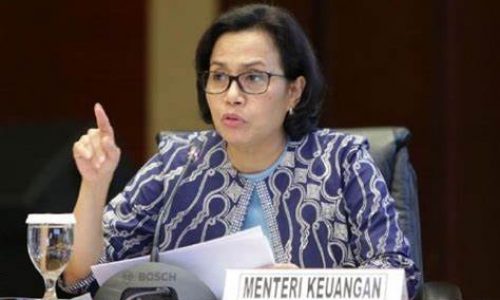Mineral and coal mining activities are governed by the Mining Law. Mining Law in 2009 marked a significant change from the previous regulatory regime for Indonesian mining. Contract-based concessions are no longer available for new mining projects. It is replaced by a single area-based licensing system, which is based on specified mining areas.
Governing laws and regulation
- Law No. 4/2009 concerning Mining
- Law No. 3/2020 concerning Amendment to the Mining Law as amended by Law No. 11/2020 concerning Job Creation
- Ministry of Energy and Mineral Resources Regulation (Permen ESDM) No. 25/2018 concerning Mineral and Coal Mining Business as amended several times with the latest amendment by the Minister of Energy and Mineral Resources (Permen ESDM) No. 17/2020 concerning the Third Amendment to the Regulation of the Minister of Energy and Mineral Resources (Permen ESDM) No. 25/2018 concerning Mineral and Coal Mining
- Ministry of Energy and Resources Regulation (Permen ESDM) No. 7/2020 concerning Procedures for the Granting of Areas, Licensing, and Reporting in Mineral and Coal Mining Business Activities
Introduction
Mineral and coal mining activities are governed by the Mining Law. The introduction of the Mining Law in 2009 marked a significant change from the previous regulatory regime for Indonesian mining . Contract-based concessions are no longer available for new mining projects. Both the well-regarded Contract of Work (CoW) and Coal Contract of Work (CCoW) frameworks for foreign investors, as well as the Mining Rights (Kuasa Pertambangan, or KP) framework for Indonesian investors, were replaced by a single area-based licensing system, which is based on specified mining areas .
The Mining Law has encountered a number of issues. Some of the issues that are still being dealt with include foreign ownership restrictions, domestic processing requirements, export restrictions for unprocessed and/or unrefined mining products, and the conversion of CoWs and CCoWs to the new licensing system. Although it has been eleven years since the Mining Law was introduced, the industry is still transitioning to full compliance with the Mining Law. To address these issues, a revision to the Mining Law had been the subject of discussion since 2015. A few years later, on May 12, 2020, to be precise, the House of Representatives (DPR) finally passed the bill on the amendment to the Mining Law. On June 10, 2020, Law No. 3/2020 on the Amendment of Law No. 4/2009 on Mineral and Coal Mining (Amendment to Mining Law) was formally enacted.
The Amendment to the Mining Law amends, clarifies and adds provisions, among other things, regarding mining business activities, licensing, the transfer of mining licenses and the shares of mining companies, extension of CoWs and CCoWs , centralization of the government in the mining sector, and several other matters which will be further elaborated on in this section, as relevant .
Mining areas
Law No. 3/2020 affirms the government’s commitment in ensuring that there will be no change to spatial use and in mining areas for which licenses have been issued Mining Business License Area (WIUP), Special Mining Business License Area (WIUPK) and Community Mining Area (WPR).
Referring to Law No. 3/2020, the maximum areas of WIUP, WIUPK and WPR are in both the exploration and production operations stages for some mining commodities. One of the changes that could be positive for mining companies (including CoW/CCoW holders who have obtained a greater area than the maximum mining license regime area under the 2009 Mining Law) is in relation to the maximum WIUPK for metallic minerals and coal commodities at the production operation stage.
Previously, the maximum area for such WIUPK in this instance was 25,000 hectares for metallic minerals and 15,000 hectares for coal. Currently, the New Mining Law Amendment has stipulated that the maximum area for such WIUPK will be determined based on ’s evaluation of the development plan proposed by the IUPK holder.
Mining areas ownership
Based on Permen ESDM No. 7/2020, the parties that are allowed to participate in a metal mineral or coal WIUP auction are determined by the size of WIUP acreages, as follows:
- < 500 ha:
- Local Regional-Owned Companies (BUMDs);
- (Local) National enterprises;
- Cooperatives; and/or
- Individuals (including firms and partnerships).
- >500 ha:
- State-Owned Enterprises (BUMNs);
- BUMDs;
- National enterprises;
- Foreign held entities PMA; and/or
- Cooperatives.
Determination and granting of non-metal and rock WIUP
- Based on Permen ESDM No. 7/2020, the Permen ESDM or governor determines the non-metal mineral or rock WIUPs based on the applications that are submitted by business entities, cooperatives, or individuals. Prior to the determination of a non-metal mineral and rock WIUP:
- The Permen ESDM shall receive a recommendation from the governor and/or the relevant governmental institution; and
- The governor shall receive a recommendation from the regent/mayor and/or the relevant institution.
- The recommendation by the governor or the regent/mayor shall be provided no later than five business days after the date when the request for such a recommendation was received.
- The Director General of Mineral and Coal (DGoMC) shall perform administrative and technical evaluations on the requests that are submitted by business entities, cooperatives, or individuals, and, based on the results of the evaluation, the DGoMC shall make a decision to accept or refuse the request for the WIUP determination, no later than ten business days after the date when the request was received.
- After being approved, the requesting party shall make a payment and provide a proof of payment to the state treasury.
Determination and granting of metal mineral and coal WIUP
- Pursuant to Article 17 of the Amendment to Mining Law, metal mineral and coal WIUPs are stipulated and granted by the energy ministry to a business entity, a cooperative, or an individual through an auction, after such WIUPs have been determined by the governor. Further procedures on the implementation of WIUP determination may be regulated under implementing regulations. The announcement of the auction shall be made at least one month prior to the auction, with requirements as follows:
- It shall be announced in at least one local newspaper and/or one national newspaper;
- It shall be announced at the office of the ministry of Mineral and Coal, or through their official website; and/or
- It shall be announced at the office of the provincial administration that manages minerals and coal, or through their official website.
- The auction shall be performed by:
- The ministry of energy and mineral resources, if the metal mineral and coal WIUP is located between two provinces or is in a sea area that is more than twelve sea miles from the coastal line to the sea and/or archipelagic waters; or
- The governor, if the metal mineral and coal WIUP is located in one province or is in a sea area that is less than or equal to twelve sea miles from the coastal line to the sea and/or archipelagic waters.
- The auction of the metal and coal WIUP is carried out in two stages, as follows:
- Pre-qualification -> evaluation on administrative, technical and financial requirements; and
- Qualification -> participants who pass the pre-qualification stage submit an offer price.
- The winner will be determined by the Auction Committee based on the weighted average results of the evaluation that was performed at the pre-qualification (carrying 40%) and qualification stages (carrying 60%).
There are two mechanisms for the determination and granting of metal mineral and coal WIUPK, as follows:
- The determination and Granting of Metal Mineral and Coal WIUPK by Priority
- This is only available for BUMNs and BUMDs that are located at the WIUPK that is going to be offered. BUMNs and BUMDs may engage private business entities whose capital is wholly from domestic investment as partners in the bidding by priority to be granted with metal mineral and coal WIUPKs.
- If there is only one BUMN that is interested and eligible, the DGoMC shall deliver the direct appointment letter to the BUMN, and shall instruct the BUMN to provide a share investment for the BUMD of at least 10%, provided that the BUMN can either form a new joint venture entity in no more than 90 calendar days after the appointment date or appoint its affiliate in no more than 60 calendar days from the appointment date.
- If there is only one BUMD that is interested and eligible, the WIUPK shall be directly granted to such a BUMD. In this case, the DGoMC shall deliver the direct appointment letter to the BUMD and shall inform it that the BUMD itself can directly operate the mining activities within the WIUPK or the BUMD can form a new business entity as a joint venture no more than 90 calendar days after the date of the direct appointment letter.
- A private entity may have a share participation in BUMD, or in a new joint venture entity as referred to above, but such investment is capped at a share ownership of 40%.
- The determination and Granting of Metal Mineral and Coal WIUPK by Auction
- The auction process for metal mineral and coal WIUPKs is conducted by the MoEMR when more than one BUMN or BUMD is interested in the WIUPK’s offer.
- The process of auctioning WIUPKs to private business entities that are engaging in the mineral and coal mining business will only be conducted when:
- No BUMN or BUMD is interested in the WIUPK offer; and/or
- No BUMN or BUMD is able to meet the administrative, technical, and financial requirements.
- The auction procedures are similar to those for metal mineral and coal WIUP.









